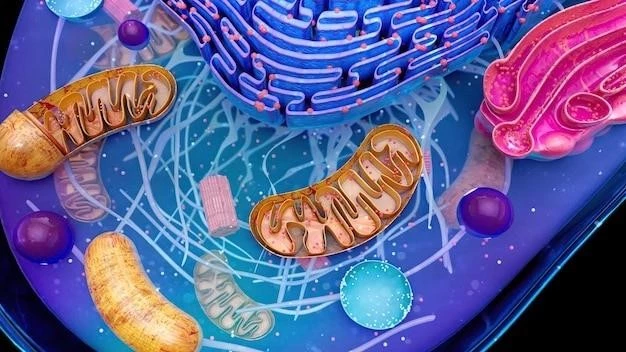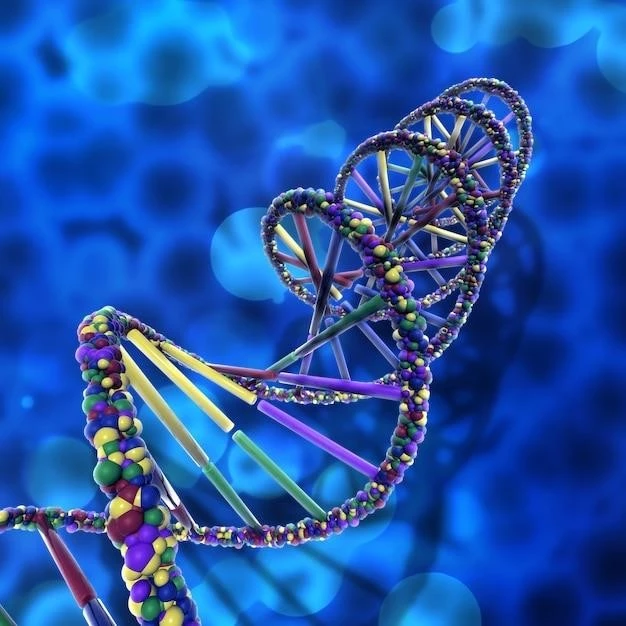Harlequin Type Ichthyosis Disease
This article focuses on the rare genetic disorder known as Harlequin Type Ichthyosis. It discusses the symptoms‚ genetic basis‚ treatment options‚ genetic counseling‚ and support systems available for patients and families dealing with this condition.
Introduction to Harlequin Type Ichthyosis
Harlequin Type Ichthyosis is a rare and severe genetic disorder that affects the skin. It presents at birth‚ primarily in newborns‚ with symptoms that can be distressing and challenging for both patients and families. This condition is inherited in an autosomal recessive manner‚ meaning that the child must inherit a mutation in the ABCA12 gene from both parents to develop the disorder.
Individuals with Harlequin Type Ichthyosis have skin that appears thick‚ dry‚ and scaly‚ resembling armor-like plates. This abnormal scaling is due to a lack of a protein that helps in skin development and maintenance. The skin’s inability to form a protective barrier can lead to issues such as dehydration‚ overheating‚ and susceptibility to infection. These factors make managing the condition a lifelong process that requires careful attention and frequent treatment.
Although there is no cure for Harlequin Type Ichthyosis‚ there are treatment options available to alleviate symptoms and improve the quality of life for affected individuals. Palliative care plays a crucial role in managing the skin-related symptoms‚ providing relief from discomfort and preventing complications. Genetic counseling is essential for families to understand the genetic risk and make informed decisions about future pregnancies.
Support groups can also be invaluable for patients and families navigating the challenges of living with Harlequin Type Ichthyosis. These groups offer a sense of community‚ shared experiences‚ and emotional support‚ helping individuals cope with the physical and emotional impact of the disease. By raising awareness and promoting research‚ these support systems aim to improve the lives of those affected by this rare genetic disorder.
Understanding Harlequin Type Ichthyosis
Harlequin Type Ichthyosis is a rare genetic disorder characterized by the abnormal development of the skin. The condition results in excessive scaling and the formation of thick plates that cover the body‚ giving the skin a unique appearance. This scaling can affect various parts of the body‚ including the face‚ limbs‚ and torso‚ leading to significant challenges in everyday life.
The underlying cause of Harlequin Type Ichthyosis lies in mutations in the ABCA12 gene‚ which plays a vital role in the skin’s barrier function. When this gene is mutated‚ the skin’s ability to retain moisture and protect against external factors is compromised‚ resulting in the characteristic symptoms of the condition. The scaling and thick plates that form on the skin can cause discomfort‚ limit mobility‚ and increase the risk of infections.
Individuals with Harlequin Type Ichthyosis may experience a range of complications due to their skin condition. Dehydration is a common issue‚ as the skin’s barrier function is impaired‚ leading to increased water loss. Overheating can also be a concern‚ as the skin’s ability to regulate temperature is compromised. Additionally‚ the skin’s susceptibility to infections is heightened‚ requiring diligent skin care and monitoring to prevent complications.
Understanding the impact of Harlequin Type Ichthyosis on both physical and emotional well-being is essential for individuals living with the condition. By raising awareness and promoting research into better treatment options‚ the medical community aims to improve the quality of life for patients with this rare genetic disorder. Through education and support‚ individuals with Harlequin Type Ichthyosis can receive the care and resources they need to manage their condition effectively.
Genetic Basis of Harlequin Type Ichthyosis
Harlequin Type Ichthyosis is caused by mutations in the ABCA12 gene‚ which is essential for skin development and maintenance. This gene provides instructions for producing a protein that plays a critical role in the formation of the skin’s outermost layer. When mutations occur in the ABCA12 gene‚ the skin’s ability to produce this protein is impaired‚ leading to the characteristic symptoms of the condition.
Harlequin Type Ichthyosis is inherited in an autosomal recessive pattern‚ meaning that an individual must inherit two copies of the mutated gene (one from each parent) to develop the disorder. If both parents carry a single copy of the mutated gene‚ they are considered carriers and typically do not show symptoms of the condition. However‚ each of their children will have a 25% chance of inheriting two copies of the mutated gene and being affected by the disorder.
The presence of mutations in the ABCA12 gene disrupts the normal development of the skin’s protective barrier‚ resulting in abnormal scaling and thick plates on the skin’s surface. This compromised barrier function not only affects the skin’s appearance but also increases the risk of complications such as dehydration‚ overheating‚ and infections.
Understanding the genetic basis of Harlequin Type Ichthyosis is crucial for accurate diagnosis‚ genetic counseling‚ and potential future advancements in treatment. By studying the genetic mechanisms underlying this condition‚ researchers and healthcare professionals can work towards developing targeted therapies that address the root cause of the disorder‚ improving outcomes for individuals affected by this rare genetic skin condition.
Symptoms and Complications
Harlequin Type Ichthyosis presents with a range of distinctive symptoms that affect the skin’s appearance and function. Newborns with this condition typically exhibit thick‚ dry‚ and scaly skin with deep cracks and fissures. The scaling often forms tight‚ diamond-shaped plates that cover large areas of the body‚ making movement difficult and challenging.
In addition to the visible skin abnormalities‚ individuals with Harlequin Type Ichthyosis may experience complications that impact their overall health and well-being. Dehydration is a common issue due to the impaired skin barrier that leads to increased water loss. Maintaining adequate hydration levels is crucial to prevent further skin damage and support overall health.
Overheating is another concern for individuals with Harlequin Type Ichthyosis‚ as the skin’s ability to regulate temperature is compromised. Monitoring body temperature and avoiding overheating situations are essential to prevent discomfort and potential health risks associated with overheating.
The skin’s compromised barrier function also increases the risk of infections‚ as harmful bacteria and other pathogens can more easily penetrate the skin. Regular skincare routines‚ including gentle cleansing and moisturizing‚ can help reduce the risk of infections and promote skin health in individuals with Harlequin Type Ichthyosis.
Understanding the symptoms and potential complications of Harlequin Type Ichthyosis is essential for individuals affected by this rare genetic disorder and their caregivers. By providing appropriate care‚ monitoring for complications‚ and seeking medical attention when needed‚ individuals with Harlequin Type Ichthyosis can manage their condition effectively and improve their quality of life.
Treatment Options
While there is no cure for Harlequin Type Ichthyosis‚ several treatment options can help manage symptoms and improve the quality of life for individuals affected by this condition. Palliative care plays a significant role in alleviating discomfort and addressing skin-related issues through a multidisciplinary approach.
Regular and thorough skincare is essential for individuals with Harlequin Type Ichthyosis. Daily bathing using gentle cleansers and moisturizers can help soften and hydrate the skin‚ reducing the severity of scaling and minimizing the risk of complications such as infections. Special attention should be paid to areas prone to dryness and cracking.

Emollients and keratolytic agents are commonly used to soften and exfoliate thickened skin in individuals with Harlejson Type Ichthyosis. These topical treatments can help improve skin texture‚ reduce scaling‚ and enhance overall comfort. In some cases‚ oral retinoids may be prescribed to regulate skin cell growth and turnover.
Supportive therapies such as humidifiers and careful regulation of room temperature can help individuals with Harlequin Type Ichthyosis maintain adequate skin hydration and prevent overheating. It is important for individuals and caregivers to work closely with healthcare providers to develop a comprehensive treatment plan tailored to the unique needs of the individual.
Additionally‚ psychological support and counseling may be beneficial for individuals and families coping with the challenges of living with Harlequin Type Ichthyosis. By addressing emotional well-being and providing resources for coping with the impact of the condition‚ individuals can enhance their overall quality of life and resilience in the face of a chronic and rare genetic skin disorder.
Genetic Counseling for Harlequin Type Ichthyosis
Genetic counseling is an integral part of managing Harlequin Type Ichthyosis‚ a rare genetic disorder that impacts individuals and their families. Through genetic counseling‚ individuals can gain insights into the inheritance pattern of the condition‚ understand their risk of passing it on to future generations‚ and make informed decisions about family planning.
Individuals with Harlequin Type Ichthyosis‚ as well as their family members‚ can benefit from genetic counseling sessions that provide information about the underlying genetic cause of the condition. Genetic counselors can help individuals interpret genetic test results‚ discuss the implications of being a carrier‚ and explore reproductive options available to minimize the risk of passing the disorder to children.
For families affected by Harlequin Type Ichthyosis‚ genetic counseling offers emotional support‚ guidance‚ and resources to navigate the complex genetic aspects of the condition. Understanding the genetic basis of the disorder can empower families to make proactive choices regarding family planning and prenatal testing.
Genetic counselors work closely with individuals and families to address their questions‚ concerns‚ and uncertainties related to Harlequin Type Ichthyosis. By providing accurate information‚ support‚ and empathy‚ genetic counselors play a key role in helping families affected by this rare genetic skin disorder make informed decisions that align with their values and preferences.
Support Systems for Patients and Families
Living with Harlequin Type Ichthyosis can present numerous challenges for both patients and their families. Support systems play a crucial role in providing emotional support‚ practical resources‚ and a sense of community for individuals affected by this rare genetic skin disorder.
Support groups dedicated to Harlequin Type Ichthyosis offer a platform for patients and families to connect with others who understand their experiences. These groups provide a safe space to share stories‚ exchange information‚ and offer mutual encouragement in coping with the daily challenges posed by the condition.
Online forums‚ social media platforms‚ and in-person support meetings can help individuals with Harlequin Type Ichthyosis and their families access valuable resources‚ stay informed about the latest developments in treatment and research‚ and build a network of support that extends beyond their immediate circle.
Furthermore‚ healthcare providers‚ including dermatologists‚ genetic counselors‚ and mental health professionals‚ can play a pivotal role in connecting individuals and families affected by Harlequin Type Ichthyosis with specialized support services. These professionals can provide guidance‚ referrals‚ and personalized care plans to address the unique needs of each individual and family.
By fostering a supportive environment that acknowledges the challenges and triumphs of living with Harlequin Type Ichthyosis‚ support systems contribute to enhancing overall well-being‚ promoting resilience‚ and empowering individuals and families to navigate the complexities of this rare genetic disorder with strength and solidarity.
